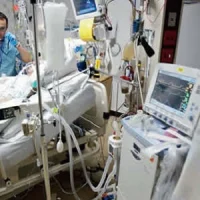Artificial Intelligence (AI) holds great promise in critical care. Vast amounts of data are regularly collected in intensive care units, making ICUs the perfect environment for deploying machine-learning techniques.
AI in ICUs can have several applications. For example, when determining the short and long-term outcomes of different interventions, a well-designed ICU system could provide significant support in the decision-making process.
AI could also be useful when designing and conducting clinical trials. There are several interventions in critical care which could benefit from large, randomised trials. Often, this is not possible because of barriers to enrollment and gathering an adequate sample size. AI-based predictive models could help solve this problem by informing researchers which patients are most likely to benefit from that particular intervention or which patients are at high risk of poor outcomes. This could significantly advance clinician knowledge.
Already, machine learning techniques have been used in critical care to predict patients’ length of stay, risk of mortality and chances of readmission. Algorithms designed to diagnose sepsis and identifying patients who can be discharged from the ICU have also been used. Wearable sensors and cameras have been utilised to detect delirium. Deep-learning systems that can distinguish facial expressions and differences in posture to determine delirious and non-delirious patients are also available.
There are also clinical trials that are exploring the benefits of a device that can be plugged into the ventilator circuit and can monitor pressure levels and flows of oxygen and carbon dioxide. These types of tools can help understand the lung and track disease. They can also facilitate the process of liberating patients from the ventilator faster. AI models have also been proposed to identify patients with COVID-19 who can benefit from proning.
In the near future, there can be complete systems that sit on a patient’s bedside and monitor them constantly. This way, AI systems can pick up vital patient data and track patients, allowing doctors to monitor these details remotely and provide assistance when needed.
Overall, there is significant potential in AI when it comes to its application in critical care. As long as things are done properly, and critical care workers are still in control of providing primary care, technology can be used to provide support to clinicians. Obviously, regulatory guidelines must improve, and a balanced approach must be in place when using any technology. Artificial Intelligence is no different. It can be very useful as long as it's utilised properly.
Source: The Lancet
Image Credit: iStock










